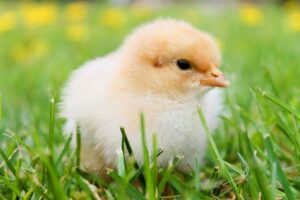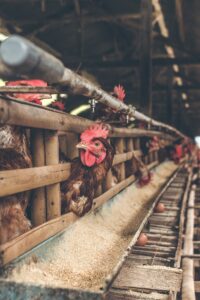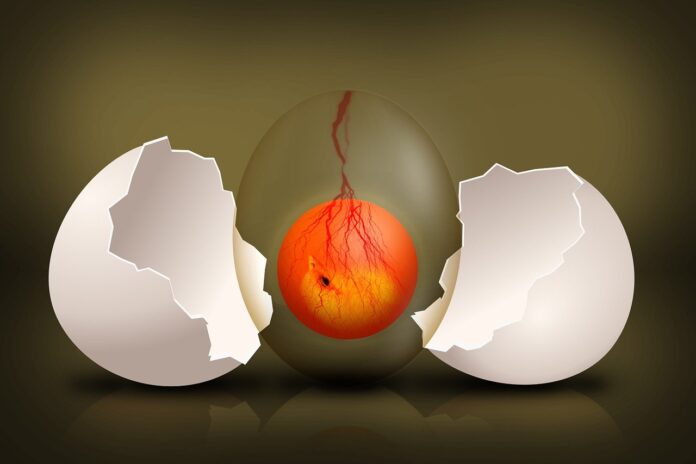“Sunday ho ya Monday, roz khao ande” – the popular advertising jingle by the National Egg Coordination Committee (NECC) from the 1980s – continues to inspire Indians to eat eggs regularly even today. A majority of people in the country, including vegetarians, consume eggs on a regular basis because it is seen as a good source of protein.
According to Statista Research and Analytics Department, India is the fourth-largest egg producer in the world after China, USA and Indonesia. From the per capita consumption of 38 eggs in 2006 to 66 eggs in 2016, India has seen a high growth in egg consumption. Besides domestic consumption, India is also a huge exporter of eggs to countries in Western Asia, Africa and Europe. Although the COVID-19 crisis has pushed India’s poultry sector into losses of around $4 billion between February and April 2020, the demand for eggs and chicken continues to rise.
Interestingly, people across the world are aware of the benefits of eating eggs, but no one ever paid heed to its health hazards. Dr. Norrina Allen, a cardiovascular epidemiologist at the Northwestern University School of Medicine in Chicago states that fat and cholesterol found in eggs may result in diseases such as prostate cancer, colorectal cancer, and diabetes, besides several heart-related ailments.
Besides its ill-effects on human health, the egg industry today is highly unethical as the methods of egg production are inhumane and involve a lot of cruelty to chickens at every stage of their lives.
Culling of Male Chicks
Despite the fact that poultry is one of the most organised segments in Indian animal agriculture, not everything is as rosy as it seems in the egg industry. The industry starts exploiting birds the moment they are born. Since male chicks don’t lay eggs or gain enough fat to produce good quality meat, they are considered worthless and are ruthlessly culled at birth.
According to investigation done on farms, almost all poultry farms raise chicks in incubators and shortly after birth, the males and females are separated via a process called ‘sexing’. Unjust and painful methods of sex determination are used on the newborn birds and the male chicks are immediately killed to reduce the costs for the breeder.
Newborn males in the egg industry are sentenced to death in the most horrific ways possible, including drowning, tossing them into the bins, throwing them alive into the large grinders (maceration) and burning them along with trash, amongst other atrocious ways.


The People for the Ethical Treatment of Animals (PETA) India recently announced its new pro-vegan campaign called ‘Save the Boy Child: Try Vegan’. It is a campaign directed at college students to inform them about the brutalities inflicted on the male chicks and calves in the egg and dairy industry. The campaign employs informative posters, leaflet distribution and screening of short films to reveal how these males are deemed “worthless” because of their inability to produce eggs or milk.
According to PETA India CEO Dr Manilal Valliyate, “Because male babies can’t be used for profit by the cruel egg and dairy industries as their subjugated female counterparts are, they’re typically chucked out like trash or killed. PETA India is calling on young people to condemn this cruelty and go vegan.”
The barbaric treatment of these social and smart birds is not just morally reprehensible but also illegal as per the Prevention of Cruelty to Animals Act, 1960. Section 3 of the Act states the duties of the persons in charge of animals, Section 11(1)(d) declares that transporting any animal in a manner that causes discomfort, pain or suffering is a punishable offence, and Section11(1)(e) clearly prohibits confining any animal in claustrophobic spaces or space that prevents freedom of movement. Yet these birds continue to suffer into dingy cages.
Endless Torture
According to studies done by PETA, red jungle fowl-the wild variety chickens naturally lay about ten to fifteen eggs a year but in factory farms they are forced to lay more than 300 eggs in a single year due to which their life expectancy reduces significantly.
A study at the University of Bristol concluded that domesticated chickens could live five to eight years but those used as “layers” live only about 72 weeks and spend their entire time confined to faeces-ridden wire cages where they are unable to perch or even spread their wings. The hens are in a constant state of physical and psychological distress.
In an estimate made by International Egg Commission (IEC), 100% of the commercial production in countries like India and Brazil is generated from caged farming. Investigative studies show that hens live in arguably the worst conditions. Living in extremely confined and dingy cages prevents them from displaying their natural behaviour.
The industry’s business model focuses on a high volume of production, with a motive to minimise expenses and maximise profits. With cages stacked several rows high and a single shed containing more than 100,000 hens, these birds are unable to even breathe freely. More than 14% hens die along the process due to poor animal welfare standards.


After 18-24 months, when the health of these egg-laying birds starts to deteriorate and the industry considers them as “spent”, they are sent to slaughterhouses where they undergo yet another series of physically and mentally traumatising events, culminating in their slaughter.
Witnessing the dire plight of the birds in the commercial egg industry, the Humane Society International has been urging factory farms to implement higher welfare standards and put an end to the inhumane breeding methods. Backed by 11 million people, Humane Society International is one of the world’s largest animal protection organisation working against animal cruelty.
The Truth About Eating Eggs
A study by JAMA Network states that the consumption of dietary cholesterol found in eggs is significantly associated with a higher risk of cardiovascular diseases. An average-sized egg is loaded with about 200 milligrams of cholesterol which may contribute to cardiovascular events, coronary heart disease, stroke, heart failure and premature death.


An increase in certain types of cancers such as colon, rectal and prostate is yet another reason to eliminate eggs from our diets.
Healthy Alternatives to Conventional Eggs
Eggs, being an easily accessible type of animal-based food in India, are consumed across regions and religions. However, due to an increasing awareness around their impact on human health as well as ethical reasons, people are slowly switching to eggs made from plant protein. These eggs are composed of protein extracted from legumes and other plant sources.
The trend of plant-based protein alternative is gaining pace worldwide and India is no exception. Various plant-based egg start-ups have initiated the development of sustainable egg alternatives with increased health benefits.
An Indian plant-based egg start-up, ‘Evo Foods’, has created a liquid egg formula made exclusively from vegetable proteins, with the help of extraction techniques that isolate protein from legumes. The Mumbai-based start-up claims to have created Asia’s first vegan egg using advanced plant biochemistry and deep food science solutions. This liquid egg solution is not just sustainable but also has zero-cholesterol, is antibiotic-free and is an ethical alternative incorporating a better nutritional profile and bioavailability.
‘PlantMade’ is another Indian startup that has created a liquid egg in collaboration with the Indian Institute of Technology (IIT) – Delhi researchers. Called Veg Bhurji, the product is a healthier and more sustainable alternative to conventional eggs. It is cruelty free, cholesterol free and allergen free option, and is made using moong dal and chickpeas. The vegan egg can be used for making scramble, fried rice, wraps, sandwiches, burgers, etc.


Singaporean company ‘Osome Food’ claims to have created the world’s first plant-based hard-boiled egg. By highlighting the use of whole food plant-based ingredients, the company assures the usage of high-quality protein in their latest product- hard-boiled eggs that provide antioxidants and are anti-inflammatory.
There are several other companies that are working in this domain including, Float Foods, Only Egg, Crack’d, Zero Egg, amongst others.
Egg alternatives are a good way to add nutrition to your diet sans the cholesterol. In fact, some of them are packed with even more health benefits than conventional eggs. The only problem with plant-based eggs is their pricing, but as demand goes up and economies of scale kick in, that won’t be a problem anymore. We just hope it happens soon!



